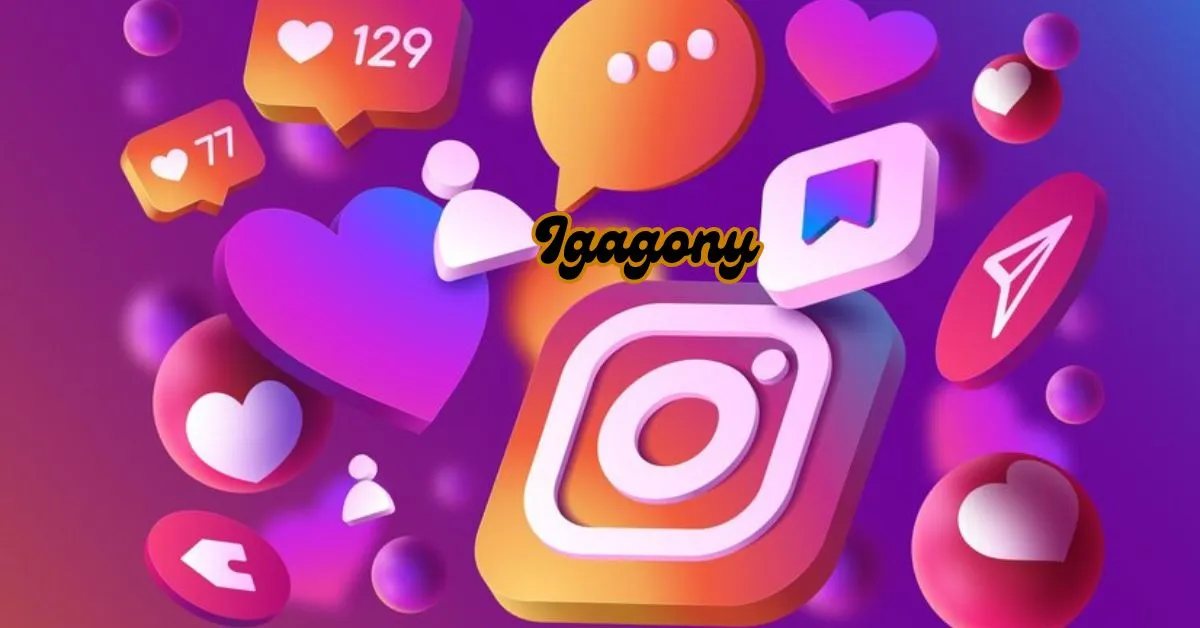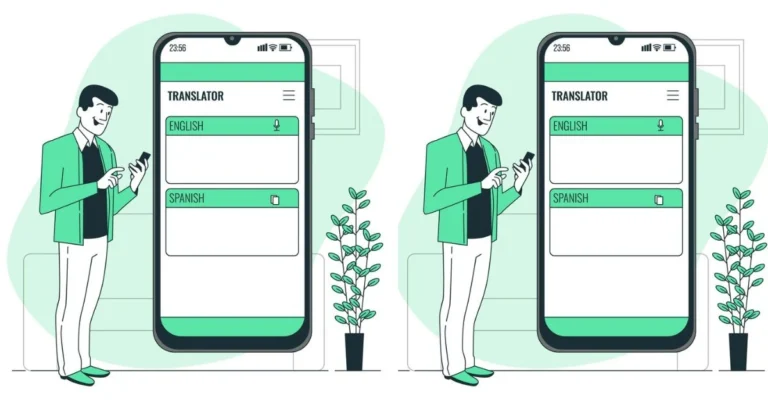Igagony: The Viral Social Media Phenomenon Shaping Online Culture
In today’s fast-paced digital world, trends come and go, but some phenomena leave a lasting impact. One such trend, “Igagony,” has taken the social media world by storm. Though the term might sound unfamiliar to some, it represents a deeply relatable and often humorous side of social media culture. If you’ve ever scrolled through Instagram and felt frustrated, envious, or even a little overwhelmed by the idealized content you see, then Igagony is a term you should know. But what exactly is Igagony? Why has it gained such popularity? And what impact does it have on social media interactions, mental health, and self-expression?
This comprehensive article will delve into the origins, evolution, and cultural significance of Igagony, examining how it has transformed the way we engage with social media, cope with its pressures, and embrace imperfections. By the end, you’ll have a clear understanding of this viral phenomenon and how it reflects the modern-day struggles of online life.
What is Igagony? A New Era of Relatable Social Media Struggles
At its core, Igagony combines two key elements: “IG” (short for Instagram) and “agony.” This mashup captures the frustrations, disappointments, and struggles that many users experience on social media, particularly on platforms like Instagram. The term refers to the often humorous, relatable moments where people realize that their carefully curated online persona doesn’t always align with the reality of their daily lives. These moments of “fail” or imperfection are embraced in a way that flips the script on the flawless, idealized content that typically floods our feeds.
Why Igagony Matters
In a world dominated by influencers and meticulously edited photos, Igagony offers a refreshing change of pace. It celebrates the moments that don’t make the highlight reel—the awkward, imperfect, and downright frustrating aspects of life that everyone can relate to. By embracing these moments, Igagony fosters a sense of community and empathy among social media users, encouraging them to laugh at their own mistakes and feel less isolated in the face of online pressures.
This is especially significant in an age where social media has become a central aspect of daily life, influencing everything from self-worth to mental health. Igagony represents a counterbalance to the often unattainable standards set by polished Instagram feeds and influencer culture.
The Origins of Igagony: From “Instagram vs. Reality” to a Cultural Movement
Tracing the Roots of Igagony
To understand Igagony, we must first look at its origins. The term likely emerged around the mid-2010s, during the rise of “Instagram vs. Reality” posts. These posts typically featured a side-by-side comparison of an influencer’s idealized Instagram photo next to the often less glamorous reality behind the scenes. Whether it was a perfectly staged vacation shot next to a chaotic travel experience or a flawless makeup tutorial contrasted with a messy bathroom, these posts resonated with users who felt overwhelmed by the pressure to present a perfect life online.
The humor in these posts provided a sense of relief. It reminded people that perfection is often unattainable and that everyone struggles with the pressure of curating the perfect social media image. What started as a lighthearted joke quickly morphed into a larger cultural shift, with more users sharing their real-life fails and awkward moments.
The Birth of Igagony
As more people embraced authenticity on social media, the concept of Igagony began to take shape. What started as a trend of humorous self-deprecation evolved into a broader movement focused on embracing imperfection. Instead of hiding behind curated content, users began sharing their everyday struggles—be it a failed recipe, a wardrobe malfunction, or a spilled cup of coffee. These moments of vulnerability not only helped to break down the barriers of perfection but also created a space for individuals to connect over shared experiences.
Igagony Culture: Embracing Imperfection in the Age of Perfection
The Power of Relatable Content
At the heart of Igagony culture is the idea of relatable content. In a digital world where influencers and brands showcase polished, aspirational lifestyles, Igagony offers a refreshing alternative. The essence of Igagony lies in showcasing imperfections—whether it’s a humorous attempt at a viral challenge that goes horribly wrong or an honest confession about a social media struggle.
By embracing these imperfect moments, users are creating a space where vulnerability and humor coexist, offering a sense of relief to those who may feel overwhelmed by the unrealistic expectations set by curated feeds. For many, it’s a form of rebellion against the constant pressure to present a perfect, idealized life.
Fostering a Culture of Authenticity
More than just a trend, Igagony represents a cultural movement focused on authenticity. In a time when filters, editing apps, and Photoshop dominate the world of Instagram, Igagony reminds us that authenticity doesn’t always look perfect. It celebrates the awkward moments, the mishaps, and the fails that make us human.
This cultural shift towards authenticity is empowering. It allows individuals to connect on a deeper level, forming genuine relationships based on shared experiences rather than curated personas. As a result, Igagony has created a space where people feel encouraged to embrace their true selves—mistakes, flaws, and all.
Types of Igagony: The Many Faces of Online Struggles
Not all instances of Igagony are the same. Over time, various types of Igagony have emerged, each representing a different aspect of the social media struggle. Understanding these types helps to shed light on how people navigate the pressures of online life and how humor is used as a coping mechanism.
Envy Igagony: The Comparison Trap
One of the most common forms of Igagony is Envy Igagony, which occurs when users scroll through Instagram and feel jealous of others’ seemingly perfect lives. Whether it’s a friend vacationing in a luxurious location, an influencer showing off their flawless lifestyle, or a colleague celebrating a career milestone, these posts can lead to feelings of inadequacy.
Envy Igagony highlights the unrealistic standards of success and happiness that social media often promotes. It’s the classic case of comparing your behind-the-scenes to someone else’s highlight reel. This type of Igagony provides a way to laugh at the irrational comparisons we make, allowing us to regain perspective and remember that everyone’s life has its ups and downs, regardless of what they post online.
Perfectionism Igagony: The Struggle for the Perfect Post
Another common form of Igagony is Perfectionism Igagony. This occurs when users put immense effort into creating the “perfect” post, only to find that reality falls short. Maybe the photo doesn’t capture the scene the way they envisioned, or the outfit they spent hours planning doesn’t look as good in pictures as it did in their head. This type of Igagony often results in self-deprecating humor and a realization that perfection is, in fact, impossible to achieve.
In an era of highly curated Instagram feeds, Perfectionism Igagony is a reminder that even the most polished photos often have a lot of work and behind-the-scenes effort. The pressure to create flawless content can be overwhelming, but Igagony allows users to laugh at their own attempts and move past the need for perfection.
Validation Igagony: The Quest for Likes and Comments
Finally, we have Validation Igagony, which revolves around the need for external validation on social media. In the age of likes, comments, and followers, many users measure their self-worth based on the engagement they receive on their posts. When a post doesn’t get the likes or comments they expect, it can lead to feelings of disappointment or even rejection.
Validation Igagony is an exploration of the emotional rollercoaster that social media can create. By laughing at the absurdity of placing so much value on external validation, users are able to release the pressure of seeking approval and instead focus on enjoying the process of sharing content.
Why Igagony is So Popular: The Appeal of Humor and Relatability
The Power of Laughter
One of the main reasons Igagony has become so popular is its humor. Laughter is a universal language, and the self-deprecating humor that comes with Igagony is something everyone can relate to. Whether it’s a failed attempt at cooking a Pinterest recipe or a photo gone horribly wrong, Igagony provides users with a way to laugh at themselves, easing the pressure that social media often imposes.
Humor is also a powerful tool for coping with the stresses of social media. Instead of becoming overwhelmed by the pressures to be perfect, Igagony allows users to take a step back and recognize the absurdity of it all. This creates a sense of relief, as users can laugh at their own imperfections and realize that they’re not alone in their struggles.
The Need for Authenticity
Another reason Igagony resonates with so many is that it provides a much-needed space for authenticity in a world that often values perfection. In an era where edited photos, filters, and curated feeds dominate, Igagony allows people to be real. It gives them permission to share the messy, unpolished parts of their lives without fear of judgment.
This emphasis on authenticity is particularly significant in a time when social media is linked to issues like mental health struggles, self-esteem, and comparison anxiety. Igagony offers a space for people to embrace their flaws, share their struggles, and find comfort in knowing that they are not alone.
Igagony and Mental Health: Navigating the Emotional Impact
While Igagony can be a source of humor and relief, it also highlights some deeper issues related to mental health and self-worth. The pressure to constantly present a perfect life on social media can lead to feelings of inadequacy, anxiety, and even depression.
Coping with the Pressure
For some, Igagony serves as a form of therapy. Sharing struggles publicly can be cathartic, offering a sense of validation and connection with others who are experiencing the same challenges. This sense of shared vulnerability can reduce feelings of loneliness and isolation, allowing users to express their insecurities and frustrations in a supportive environment.
The Dark Side of Igagony
However, there is a fine line between self-deprecation and negative self-talk. Constantly focusing on fails, mistakes, or imperfections can reinforce feelings of inadequacy, exacerbating mental health issues rather than alleviating them. For some users, Igagony can amplify feelings of self-doubt, making it important to maintain a healthy balance between humor and self-compassion.
Conclusion
Igagony is more than just a passing trend—it’s a cultural shift that has reshaped the way we interact with social media. By embracing vulnerability, humor, and authenticity, Igagony encourages individuals to connect over their shared imperfections rather than their curated personas. Whether it’s through self-deprecating humor or honest conversations about the pressures of online life, Igagony has given people the permission to laugh at their struggles and find comfort in their authenticity.
As social media continues to evolve, it’s clear that Igagony will remain a key part of the digital landscape. Whether you’re sharing your own relatable struggles or laughing at someone else’s, Igagony has become a space where imperfections are celebrated, and authenticity is king. In the world of Instagram-perfect filters and influencer culture, Igagony offers a much-needed reminder that we’re all just human—flaws and all.Top of Form






